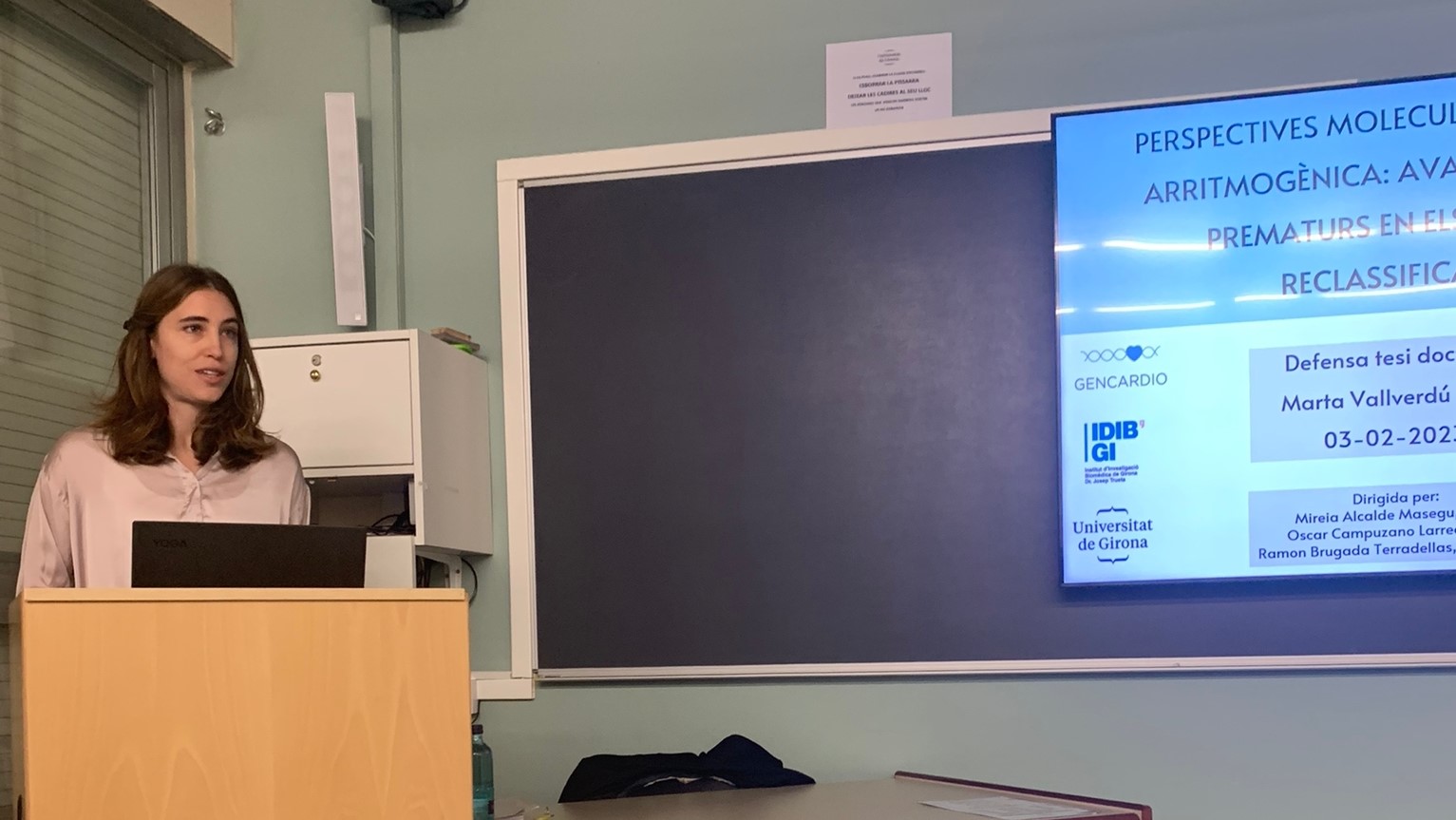
El pasado viernes día 03/02/2023 a las 12:00h la Sra. Marta Vallverdú Prats hizo la lectura de la tesis doctoral titulada: “Molecular insights on Arrhythmogenic Cardiomyopathy: Assessment of Premature Termination Codons in Desmosomal genes and variants reclassification", dirigida por el Dr. Ramon Brugada, la Dra. Mireia Alcalde y el Dr. Oscar Campuzano.
Resumen de la tesis
Arrhythmogenic cardiomyopathy (ACM) is an entity that groups different clinical forms of hereditable cardiac diseases with a tendency to cause ventricular arrhythmia. The main cases are characterized by the substitution of cardiomyocytes with fibro-fatty tissue being palpitations, syncope and sudden cardiac death the main symptoms. The
principal genetic cause are rare variants in desmosomal genes, but other genes encoding cytoskeletal or adherens junction are also associated with this entity. Moreover, variable expressivity and incomplete penetrance are hallmarks of ACM. Its diagnosis is based on “International Task Force Criteria” that include several parameters to fulfil major and
minor criteria to determine if the patient reaches the criteria score to obtain definitive, borderline or possible diagnosis. One of those important parameters for the ACM clinical diagnosis is the family history and genetic diagnosis. For that reason, many studies are increasingly focused on describing the role of genetic variants and the associated
molecular alterations. However, there are still uncertainties to be answered on this direction.
The present thesis has the aim to describe the molecular mechanisms and functional consequences triggered by premature termination codons (PTC) in desmosomal genes using a CRISPR edited cellular line as a model. Moreover, it also aims to determine how updated data of genetic ACM-associated variants impacts its classification.
Our results on the cellular model showed that a PTC in 5’ region of DSP and JUP triggers reinitation of translation due to an optimal genomic context while PTC in 5’ located in PKP2, DSG2 and DSC2 activates nonsense-mediated decay causing the absence of the protein expression associated to a more deleterious effect. Functionally, the absence of
the studied desmosomal genes triggered alterations in calcium handling. Specifically, the loss of PKP2, DSG2 or DSC2 causes a higher amplitude of Ca2+ peak while DSP loss triggers a quicker calcium uptake with a shorter amplitude of the peak. Finally, this thesis also described that new data of genetic variants, such as updated global frequencies,
contribute to reduce the uncertainty in terms of clinical variant classification. In summary, although ACM physiopathology is complex and there are still lots of questions to be solved, the present thesis elucidated some of the key molecular pathophysiological mechanisms underlying the disease pointing into some directions worth to be explored in future ACM studies.